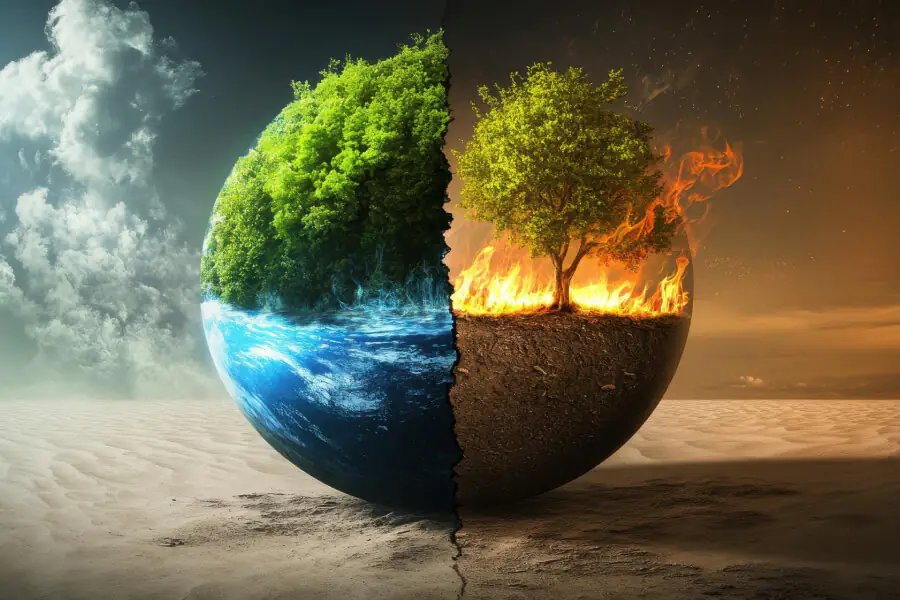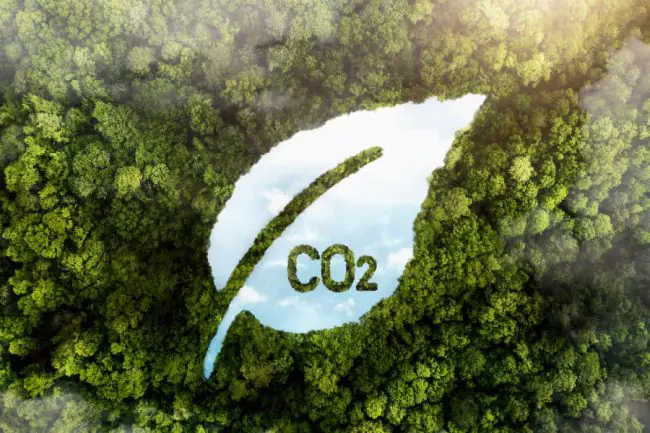Climate change is no longer a distant concern; it’s a present reality affecting every corner of the globe. While most of the conversation revolves around environmental damage, the impacts on human health are just as critical. Rising temperatures, changing weather patterns, and shifting ecosystems have direct and indirect effects on our well-being.
Impact of Climate Change on Human Health
Climate affects human health in various ways. Extreme weather events like heatwaves, floods, and storms are becoming more frequent and severe, putting lives at risk.
At the same time, gradual changes such as rising temperatures, sea levels, and shifts in disease patterns have longer-term effects.
To fully understand the health implications of climate change, it’s essential to explore its direct and indirect effects.
Key Facts about Climate Change
Before diving into the specific health risks, let’s take a moment to review some key facts about climate:
- Global Temperature Rise: The Earth’s average surface temperature has risen by about 1.2°C since the late 19th century. This change is primarily due to increased carbon dioxide and other human-made emissions.
- Ocean Warming: Over 90% of the warming that has occurred on Earth in the past 50 years has been in the oceans, causing marine heatwaves and threatening marine life.
- Extreme Weather Events: There is an increased frequency and intensity of extreme weather events, such as hurricanes, droughts, and wildfires.
- Rising Sea Levels: Global sea levels have risen about 8 inches in the last century, primarily due to melting ice sheets and glaciers.
- Loss of Biodiversity: Climate change is leading to habitat loss and species extinction at an unprecedented rate.
Understanding these fundamental aspects helps us comprehend how climate change sets the stage for various health challenges.
Overview of Climate Change and Health
Climate change influences health through multiple pathways. It can directly cause health problems by increasing the frequency and severity of extreme weather events. Indirectly, it affects the determinants of health, such as clean air, safe drinking water, sufficient food, and secure shelter. Below, we discuss specific health risks associated with climate .
Specific Health Risks Associated with Climate Change
Heatwaves are becoming more frequent, intense, and prolonged due to climate change. This can lead to heat-related illnesses like heatstroke and dehydration, especially among vulnerable populations such as the elderly, children, and those with pre-existing health conditions. Extreme heat can also worsen chronic conditions, including cardiovascular, respiratory, and cerebrovascular diseases.
- Heat-Related Mortality: Increased temperatures contribute to a higher incidence of heat-related deaths. In Spain, a significant rise in heatwave days has been linked to an increase in mortality rates.
- Urban Heat Islands: Cities often experience higher temperatures than rural areas due to the “urban heat island” effect, where buildings, roads, and other infrastructure absorb and re-emit heat. This phenomenon can lead to a spike in heat-related health issues.
Air Quality Issues and Respiratory Health
Climate change exacerbates air pollution problems, which significantly affects respiratory health. Rising temperatures can increase ground-level ozone, a harmful air pollutant that affects lung function and exacerbates asthma and other respiratory conditions.
- Increased Allergens: Higher temperatures and increased CO2 levels also lead to longer pollen seasons and more potent allergens, contributing to respiratory issues like asthma.
- Wildfires: Increased frequency and intensity of wildfires lead to higher levels of particulate matter in the air, which can aggravate respiratory and cardiovascular diseases.
Vector Borne Diseases and Other Infectious Illnesses
Climate change alters the geographic range and seasonality of vectors (like mosquitoes, ticks, and flies) that carry diseases such as malaria, dengue, Lyme disease, and Zika virus. Warmer temperatures, changes in rainfall patterns, and shifts in humidity levels create more favorable conditions for these vectors to thrive and expand their habitats.
- Malaria and Dengue: Regions that were previously too cold for mosquitoes carrying malaria and dengue are now seeing a rise in cases due to warmer temperatures.
- Tick-Borne Diseases: Warmer winters and longer summers increase the spread of tick-borne diseases like Lyme disease.
Waterborne Illnesses and Food Safety Concerns
Changing weather patterns, such as increased rainfall and flooding, can lead to the contamination of water sources. This, in turn, raises the risk of waterborne diseases such as cholera, typhoid fever, and other gastrointestinal illnesses.
- Flooding and Contaminated Water: Floods can overwhelm sewage systems, contaminating drinking water and leading to outbreaks of diseases.
- Foodborne Illnesses: Climate change can also impact food safety. Higher temperatures can promote the growth of pathogens in food, increasing the risk of foodborne illnesses.
Mental Health Challenges Caused by Climate Change
Climate change can also have profound effects on mental health. The trauma of experiencing extreme weather events like hurricanes, floods, and wildfires can lead to anxiety, depression, and post-traumatic stress disorder (PTSD).
- Climate Anxiety: The growing awareness of climate change and its potential impacts can lead to feelings of helplessness, fear, and grief, commonly referred to as “climate anxiety.”
- Displacement and Loss: Natural disasters resulting from climate change can displace people from their homes, leading to a loss of community and a sense of identity, further affecting mental health.
Populations at Greater Risk
While climate change affects everyone, some populations are more vulnerable than others due to factors like age, socioeconomic status, geographic location, and existing health conditions.
Vulnerable Groups Affected by Climate Change
- Elderly and Children: These groups are more susceptible to heat-related illnesses, respiratory issues, and infectious diseases.
- Low-Income Communities: Often live in areas more prone to environmental hazards and have limited access to healthcare, making them more vulnerable to climate-related health issues.
- Indigenous Communities: Often rely on natural resources for their livelihoods, and climate change can disrupt these systems, leading to food insecurity and health risks.
Health Disparities and Environmental Justice
Climate change often exacerbates existing health disparities. Communities already facing health and economic inequities are more likely to suffer from the health impacts of climate change. Environmental justice seeks to address these disparities by ensuring fair treatment and meaningful involvement of all people in environmental decision-making.
Preparing for and Mitigating Health Effects
Adaptation Strategies for Individuals and Communities
Communities and individuals can take steps to adapt to the changing climate and mitigate its health effects. These strategies include:
- Building Climate-Resilient Health Systems: Strengthening healthcare infrastructure to withstand extreme weather events and addressing climate-related health risks.
- Promoting Urban Green Spaces: Increasing green spaces in cities can help reduce the urban heat island effect and improve air quality.
- Improving Water and Sanitation Systems: Ensuring access to clean water and proper sanitation can reduce the risk of waterborne diseases.
Policy Implications and Government Actions
Governments play a crucial role in addressing the health effects of climate change. Policies and actions include:
- Implementing Early Warning Systems: For heatwaves, floods, and disease outbreaks.
- Reducing Greenhouse Gas Emissions: Through regulations and promoting renewable energy.
- Public Health Campaigns: Educating the public about climate-related health risks and promoting preventive measures.
Personal Steps to Address Climate Change Health Risks
Individuals can take steps to mitigate the health impacts of climate change, such as:
- Reducing Carbon Footprint: By using energy-efficient appliances, reducing car use, and supporting sustainable practices.
- Staying Informed: Keeping up to date with local climate risk assessments and health advisories.
- Supporting Vulnerable Communities: Volunteering or donating to organizations working to protect vulnerable populations from climate-related health risks.
Advocacy and Awareness Initiatives
Raising awareness about the health impacts of climate change is vital. Advocacy efforts can include:
- Community Programs: Organizing local workshops and discussions on climate and health.
- Social Media Campaigns: Spreading awareness about climate change and health issues to a broader audience.
Additional Resources and Further Reading
For more information on the health effects of climate change, explore the following resources:
- Links to Climate Change and Health Factsheets: Such as those provided by the WHO and CDC.
- References for In-Depth Exploration: Scientific papers, government reports, and health organizations’ guidelines.
Conclusion
The health effects of climate change are complex and far-reaching, affecting people worldwide. However, by understanding the risks, advocating for change, and taking personal and collective action, we can work towards a healthier and more sustainable future.
FAQs
How Climate Change Impacts Health?
Climate change impacts health through direct effects like heatwaves and extreme weather events, and indirect effects such as air quality deterioration, vector-borne diseases, and waterborne illnesses.
What are the effects of climate change?
Effects include rising temperatures, increased frequency of extreme weather events, shifts in disease patterns, and impacts on mental health.
How are people responding to climate change in the Pacific?
People in the Pacific are responding by building resilience through community-based adaptation strategies, advocating for global climate action, and investing in sustainable infrastructure.








